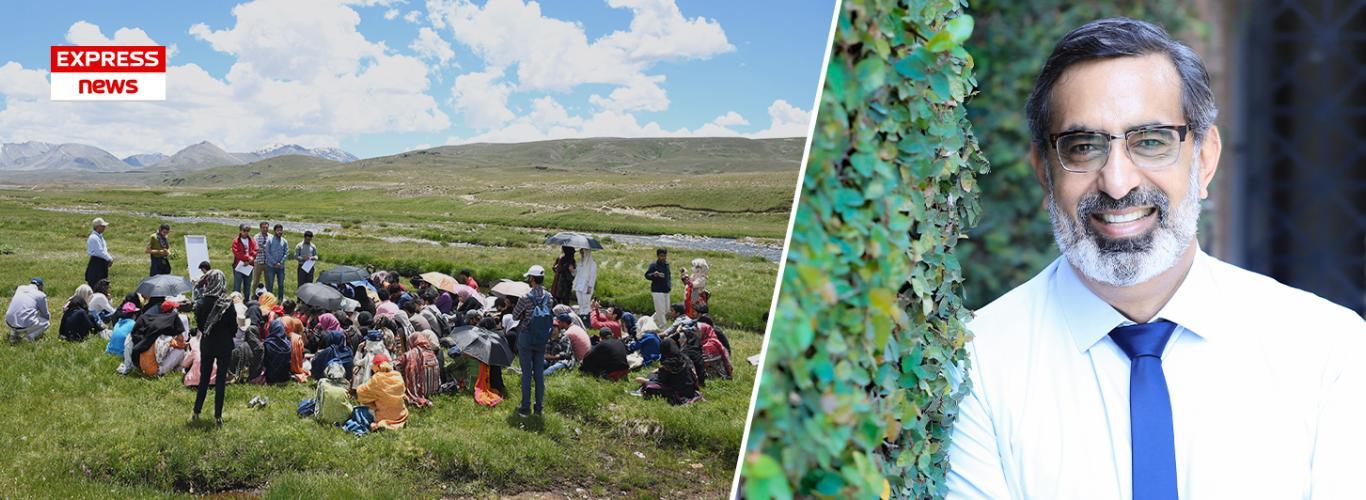LUMS Vice Chancellor Discusses Cross-cultural Collaborations in Interview with Express News
To mark International Literacy Day, Dr. Arshad Ahmad, Vice Chancellor, LUMS, in an interview with Express News, spoke about the collaboration with the University of Baltistan, Skardu (UoBS) in which 300 students came together for a summer of experiential learning in Skardu to learn with and from each other.
150 LUMS students were paired with 150 UoBS students under the ‘Learning Without Borders - The Baltistan Experience’ initiative, which featured five experiential learning courses: Introduction to Life Science, Entrepreneurship, E-commerce, Water Resource Management, and Green Energy. Each course was designed and taught together by faculty from both universities to provide students with an immersive experience so that they are better equipped to solve challenges and make an impact in the future.
Dr. Ahmad spoke about how the twinning programme was a chance to learn important lessons from an area where the literacy rate is astounding. “In Baltistan, if you ask someone who among their children do you want to admit in school, the answer is almost always females. As a result, almost 90% of the female population is literate. This is excellent news for all of us to learn about the importance that they give to education.”
Skardu became the epicentre for practical and applied learning for a whole month. “Experiential education is the word to talk about when it comes to hands on and practical learning. There is no substitute for learning in natural settings. Through this collaboration, we designed courses where 75% of the coursework would be done in the field; Deosai and Sadpara Lake became classrooms for our students,” he said.
Students and faculty were also exposed to how locals live on a day-to-day basis, he explained. From land-sliding to water shortages, they experienced real life in Skardu and learnt to adapt and come up with solutions.
Conversations with UoBS also involved research regarding climate change, and Baltistan served as the perfect backdrop. Dr. Ahmad added, “Apart from the north and south pole, the Himalayan region is the third pole in the world. The glaciers are melting; they have a lot of focus on how to reverse that change and they are doing some wonderful studies. Our idea was to collect data and tell researchers about it.”
To watch the full interview, click here.

